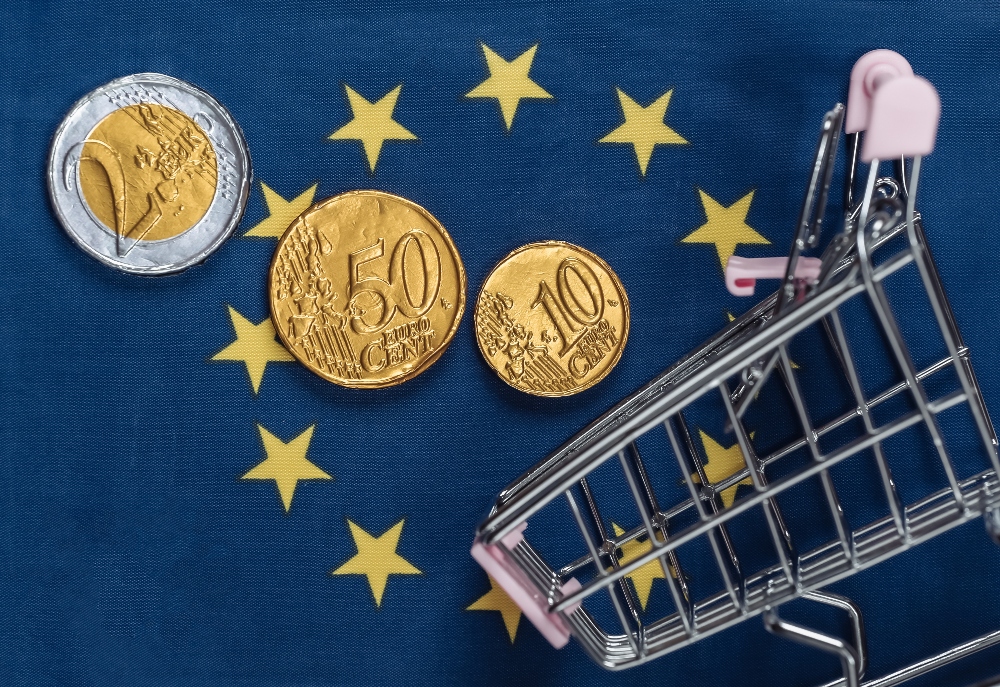Inflation in the Euro Area unexpectedly rose to 2.6% in July, defying market expectations of a decrease to 2.4%.
This uptick, as reported by the European Union, was primarily driven by a notable increase in energy prices, underscoring the ongoing volatility in global energy markets and its impact on the broader economy.
Energy expenses played a significant role in the inflation surge, rising from 0.2% in June to 1.2% in July.
The prices of non-energy industrial goods also continued to climb, with a 0.7% increase in July, maintaining the same pace as the previous month.
This sustained growth indicates strong economic activity and robust consumer demand across the Eurozone, further contributing to inflationary pressures.
Food, alcohol, and tobacco inflation saw a decline
In contrast, the inflation rate for food, alcohol, and tobacco saw a slight decline, dropping to 2.3% in July from 2.4% in June.
This decrease was mainly due to a slowdown in unprocessed food price increases, which helped offset ongoing inflation in processed food, alcohol, and tobacco products.
The core inflation rate, which excludes volatile components like energy, food, alcohol, and tobacco, remained steady at 2.9% in July.
This stability suggests that underlying inflationary pressures in the Eurozone persist, painting a complex picture for policymakers who must navigate these enduring challenges.
Inflation rates varied across the Euro Area’s largest economies.
France and Germany both saw increases to 2.7% and 2.6%, respectively, while Italy’s inflation rose to 1.6%, remaining below its counterparts.
These disparities highlight the diverse economic conditions within the Eurozone and the different challenges each country faces.
Construction sector shows signs of recovery: Why?
Amid rising inflation, the Euro Area’s construction sector experienced a positive turnaround.
Construction output increased by 1% year-on-year in June 2024, reversing a previous 2.1% decline.
Civil engineering projects surged by 3.5%, up from 1.2% in May, while building activity grew by 1.5%, rebounding from a significant 4.2% drop in the previous period.
Specialized building activities also showed modest growth, increasing by 0.4% after a 1.8% decline.
Spain led the way with a 4.8% increase in construction activity, while Germany and France faced declines of 4.4% and 1.8%, respectively.
The seasonally adjusted production in the construction sector across the Euro Area rose by 1.7% in June compared to the previous month, signaling renewed confidence and investment in the industry.
The Euro Area’s inflation dynamics present a mixed picture, with energy price volatility and robust industrial demand driving inflation higher, while the construction sector shows signs of recovery.
Policymakers, businesses, and consumers must remain vigilant as they navigate this complex economic landscape, balancing inflationary pressures with the need for sustained growth and stability.
The post Euro area inflation rises to 2.6% in July, surpassing expectations appeared first on Invezz
